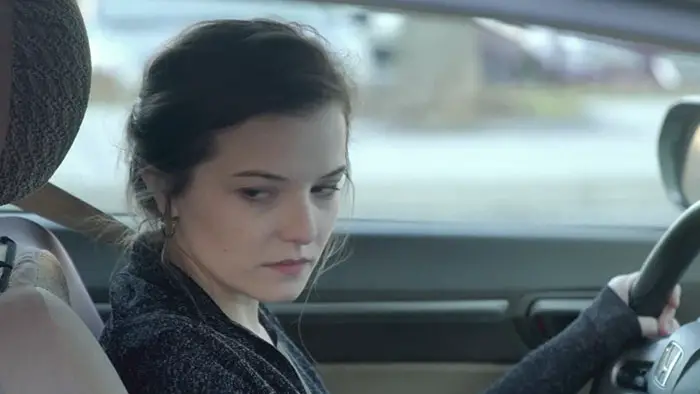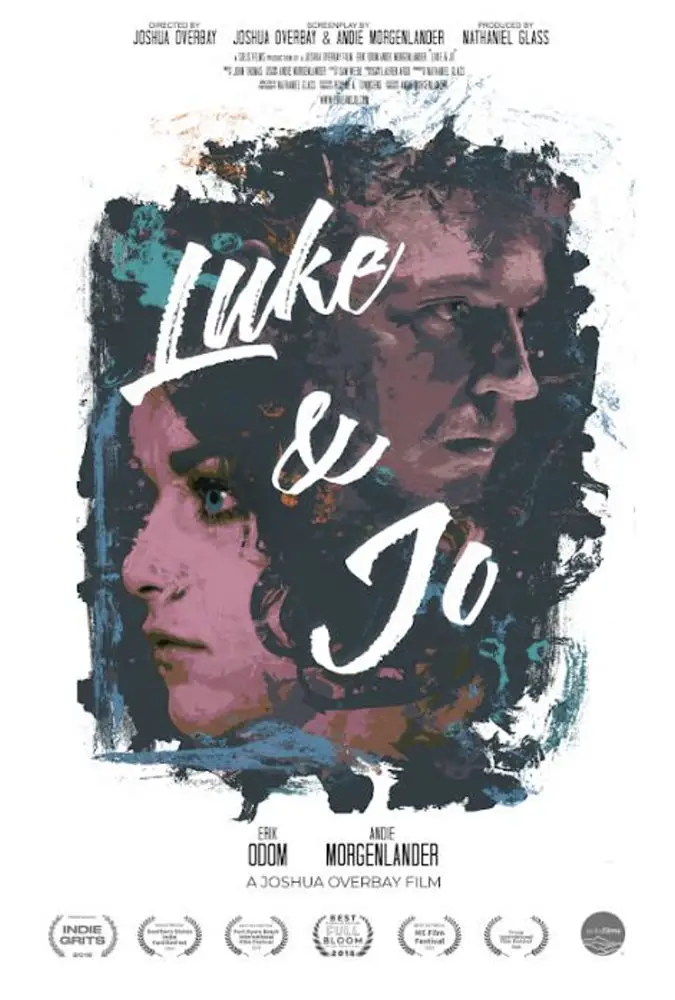
I won’t lie, at this point in the film, I had serious reservations as to whether this was going to be an awkward paean to tragically misunderstood artists. This was due in part to the fact that Luke, as played by Erik Odom, comes at the role with such earnest righteousness that it seemed any edge or defect within the character was sanded out. This was to be another case of “I’m right, and they’re all wrong!” without any real exploration of just why something you created doesn’t resonate with others. I could not have been more wrong.
When Luke’s script gets attention from a producer’s assistant who corals him a one-on-one dinner, it seems as though someone has finally gotten it! Conflict, resolution, over. Right? This is not the case. In a bravura sequence that lasts nearly ten minutes (without a single cut!) in which Luke pitches his script to the producer, all the tension I previously worried was absent in the film bubbled to a boil and the sustained slow burn of the scene peaked and erupted.
Odom had been good up to this point; in this scene, he was transcendent. Not because he is pitching us the greatest movie concept of all time, but rather because Luke believes it’s the greatest idea of all time. To be sure, the idea—a subverted exorcism story with Abrahamic overtones—is not uninteresting, and he delivers his case for it with such impassioned fervor that any producer worth his salt would be excited. But at the core of his character (and, incidentally, of his script as well), we plainly see the blinding glint in his eyes, indicating this is not just about his artistic vision. Being understood at this moment is confirmation of all the doubts and rejections he’s had to contend with as a struggling artist. If he is immovable, that means he’s right.

“…demonstrates how artistic integrity and creative obstinance are, in fact, two separate things.”
Predictably, his dark everyone-gets-smited-by-God ending doesn’t play with the producer who was game up until that point and even tells him that if he reworks the ending, he would be interested in it. But Luke is so blinded by self-righteousness that not only can he not accept that note, he lashes out at the producer and assistant who vouched for him, thereby burning any bridge he had to get his script made potentially. Despite the obviously low-brow sensibilities of the producer, and even if we might disagree with his critique, the film doesn’t suggest that Luke’s lack of compromise is a good thing. In his subsequent unraveling, it demonstrates how artistic integrity and creative obstinance are, in fact, two separate things. In other words, being inflexible doesn’t make you a truer artist and what ultimately fuels Luke’s meltdown and self-sabotage is not lame studio execs but rather the unconscious desire to preemptively protect himself from the compromise, criticism, and potential misunderstanding that comes with putting your art out into the world.
For an often familiar story, Luke and Jo stands out by virtue of its restraint. The film is simply not inserted in satisfying our urges for conventional resolution. After Luke blows up his pitch meeting, he seeks solace and validation in Jo, who has just gone through her own trauma, unbeknownst to Luke. When Luke’s manic explanation that he told the producer “to go f**k himself…and it felt good,” turns into a confession about his failed marriage and desire to be with Jo because: “You listened, and we were able to connect,” Jo loses it. She perceptively observes his transference of feelings and rightly calls him out, exclaiming: “I can’t handle another dysfunctional man in my life!”
But even as they appear to be taking one step forward and two steps back, there is a calm and comfort to the denouement. Life, especially for an artist, will always find ample ways to break you down and make you feel isolated in your own mind. Sometimes, sharing that experience with a companion going through the same is all we can ask for, and maybe all we need.

"…stands out by virtue of its restraint."

